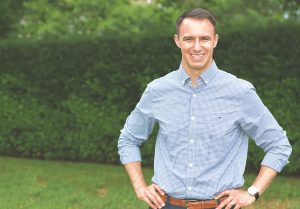Consultant advises officials immediate changes must be made to avoid problems
By Greg Ellison
(Feb. 3, 2022) Berlin Town Council is contemplating establishing capital reserve funds for both water and sewer services to address long-term financial deficits.
Jean Holloway, from Southeast Rural Community Assistance Project Inc. (SERCAP) in Delaware and eastern Maryland, returned for the council meeting last Monday to review conclusions initially shared in November.
“Neither water or wastewater is financially sustainable under the current circumstances and rate structure,” she said.
Also, Holloway said Berlin’s sewer system is overloaded with debt, which accounts for more than 30 percent of total expenses.
“Capital reserves need to be established immediately for both utilities,” she said.
Mayor Zack Tyndall agreed with the assessment.
“Our funds are not doing well on the revenue side and capital investment side,” he said.
Holloway said both systems are currently not sustainable as enterprise funds.
“The fact that these systems are not sustainable jeopardizes your abilities to get program funding if you need improvements and you can’t self-fund a large project,” she said.
Based on the results of a previous water audit, SERCAP concluded that Berlin is losing almost one quarter of water production.
“If you were a manufacturer, that would be the same as taking 25 percent of your product and throwing it in the dumpster and not getting paid back for it,” she said.
Holloway said based on current water rates, the town could anticipate a significant loss of revenue.
“Old and insufficient metering is definitely part of problem, but meters alone will not make the system sustainable,” she said.
The recommendations championed by Holloway in November included replacement of current water meters with apparatus that reads gallons from the first used.
“A water audit can help determine actual losses, but you should wait until new meters are operational for six months to a year,” she said.
Holloway also proposed instituting interim rate measures for the current fiscal year, which ends on June 30, through the close of FY 23 at the end of June 2023.
“It will help you be sustainable until you get readings from new meters to know exactly what water you’re putting out and how much you’re getting paid for,” she said. “You can build a new rate structure around it.”
In addition to proposing rate revisions after new meters are in play, Holloway proposed adding a new surcharge in the interim to build capital reserve funds.
“This would be a flat charge separately itemized on the bill and has nothing to do with usage,” she said.
The recommendation would include adding a $5 surcharge for residential EDUs and $10 for commercial EDUs per billing cycle.
On the sewer side, a fee of $14.50 per residential EDU and $29 per commercial EDU would be added to each billing cycle.
“Your sewer service costs about 2.9 times more to run than water service,” she said.
The estimated monthly revenue from the water surcharge would be roughly $13,000, with $41,228 generated for the last quarter of FY 22 and $164,910 collected during FY23, for a total sum of $206,138.
The sewer surcharge would net roughly $40,000 monthly, with $120,460 collected during the last quarter of FY22 and $481,839 during FY23, for a total of $602,229.
“By the end of this period, you’d have a significant … reserve to both help fund some capital outlays and also to build up a reserve for emergencies and contingencies,” she said.
Holloway said neither water or sewer services are currently being operated as enterprise funds.
“From everything I’ve seen, right now your only emergency contingency fund is ‘general fund, how much can you lend us,’” she said.
Due to the lack of reserves for water or sewer systems the town is susceptible to operational or financial challenges, Holloway said.
“Establishing these funds is critical to achieving sustainability and credit worthiness for future projects,” she said. “Charges should begin April 1.”
Holloway noted installation of new water meters is also critical.
“Your lost water is really crippling you,” she said. “You’re losing money hand over fist.”
Holloway said water and sewer rates for residential and commercial accounts are not equitable at present.

Zack Tyndall
“In some cases, each pays higher,” she said.
Improved meter reading could result in rate reductions in some instances, Holloway said.
“It’s almost impossible to know rates when you’re losing a large volume of water,” she said.
Tyndall asked council members how they felt about authorizing the new fees to build capital reserves.
“I don’t generally want to raise fees, but the funds need to break even and right now they aren’t,” he said.
Councilmember Jay Knerr agreed that the fund deficiencies should be addressed but questioned the timing for adding charges due to inflation concerns.
“I would recommend to start with the next FY budget cycle,” he said. “We don’t know where inflation is going to take us in the next few months, but it is getting out of control.”
Councilmembers Shaneka Nichols and Dean Burrell both recommended seeking public input before to authorizing fees.
Taking a different bent was Finance Director Natalie Saleh who lobbied for establishing fees by this April.
“Six months down the road, we will be in the same or an even worse situation,” she said.
Tyndall said the recommendations would remain under consideration for potential approval at a subsequent council meeting.
“We would like to take it back to the drawing board,” he said. “I think there are ways we can balance this out.”
